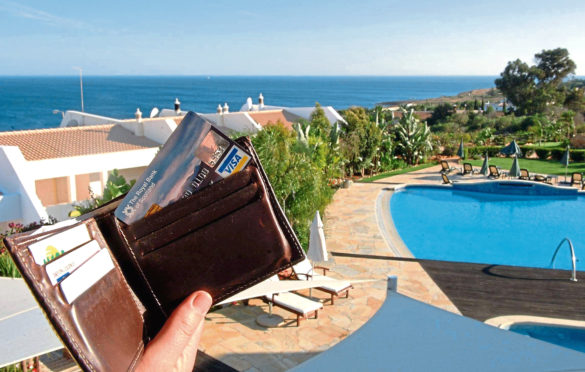UK holidaymakers were fleeced out of more than £7 million by fraudsters during last year, new figures show.
The amount of money stolen represents an increase from £6.7m in 2017, fraud reporting centre Action Fraud said.
More than half (53%) of the crimes related to the sale of airline tickets, with scammers particularly targeting people visiting family and friends in Africa and the Indian subcontinent.
One in four (25%) cases involved accommodation, such as payments to stay in upmarket villas which were either fictitious or offered without the owner’s knowledge.
Spain and France were among the destinations most commonly affected by this issue.
More than 5,000 people reported losses last year, with victims losing an average of £1,380 each.
Travel agents’ body Abta, Action Fraud and Get Safe Online have joined forces to warn the public about the dangers posed by holiday fraud and give advice on how to spot and avoid it.
Holidaymakers are being urged not to rely on a small number of online reviews, and to be wary of paying someone by private bank transfer.
Mark Tanzer, the chief executive of Abta, said: “Abta sees at first hand the damage caused by travel fraudsters after customers find out their much-anticipated holiday or trip to visit family and friends does not actually exist.
“The cost to victims is not just financial.
“This crime causes very real emotional distress.Fraudsters are using increasingly sophisticated methods to target destinations and times of year when demand is high and availability limited, as they know people will be looking for good deals.”
He added: “As victims often find out just before they travel or even in resort that they have been defrauded, it can then be very difficult and expensive to obtain a legitimate replacement booking – compounding the financial costs and emotional distress suffered by victims.”
Action Fraud head Pauline Smith said: “There is a startling emotional impact of falling victim to holiday fraud, bringing the feeling of embarrassment and disappointment to those we love.
“We want to ensure people feel better able to protect themselves.
“Fraudsters are increasingly using more sophisticated ways to trick their victims, which is why it is important that you do your research when making travel arrangements.”
Action Fraud is the UK’s national fraud and internet crime reporting centre.
It provides a central point of contact for information about fraud and financially motivated internet crime.
North of the border, people can report incidents of fraud to Police Scotland via the 101 non-emergency phone number.
